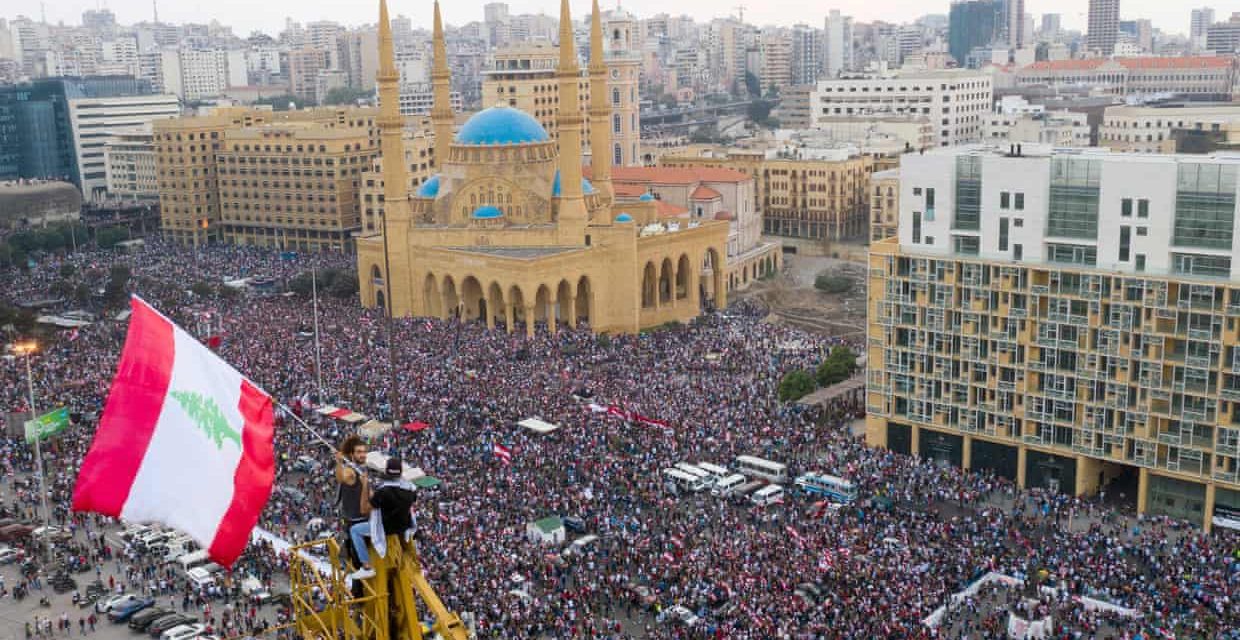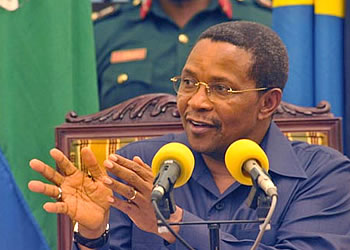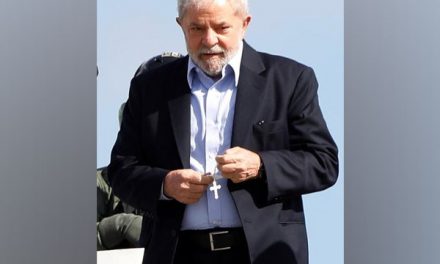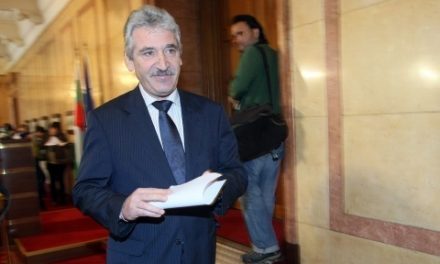21 Octeber 2019
The largest protests in Lebanon in 14 years are set to shut down the country for a fifth day on Monday, as a revolt against a weak government, economic collapse and looming corruption. Demonstrators took to the streets of most urban centres on Sunday. The picture shows protesters in front of the Muhammad al-Amin mosque in the capital city.
Dissent erupted on Thursday after new taxes were announced including a $6 per month levy on the messaging application WhatsApp, which was instrumental in sending protesters on to the streets.But it scrapped the levy hours later because of clashes between security forces and protesters.
Dissent erupted on Thursday after new taxes were announced including a $6 per month levy on the messaging application WhatsApp, which was instrumental in sending protesters on to the streets.But it scrapped the levy hours later because of clashes between security forces and protesters.
On Friday high-end shops in Beirut were ransacked and one man died in the northern city of Tripoli.
While demonstrations are not uncommon in Lebanon, crowds of this size taking to the streets has not been seen since the so-called Cedar revolution of 2005, which led to Syrian forces leaving the country after 15 years of post-civil war involvement in Lebanon’s affairs.
Lebanese leaders will have to introduce deep structural reforms to free up revenues and pave the way for $11bn in soft loans and grants from France that could stimulate the stagnant economy.
The Guardian reported.
Lebanese leaders will have to introduce deep structural reforms to free up revenues and pave the way for $11bn in soft loans and grants from France that could stimulate the stagnant economy.
The Guardian reported.
Saad al-Hariri, who is leading a coalition government mired by sectarian and political rivalries, gave his quarrelling government partners a 72-hour deadline on Friday to agree reforms that could avoid a crisis, implying he may otherwise resign. He accused his rivals of hindering his reform measures that could open up the $11 billion in Western donor pledges and help avert economic collapse.
The reform packages require a 50% reduction in salaries of current and former presidents, ministers and MPs plus cuts in benefits to state institutions and officials. It also obliges the central bank and private banks to contribute $3.3 billion to wipe out the deficit in the 2020 budget. It also includes privatization of the telecommunications sector and an overhaul of the electricity sector, which poses one of the biggest strains on the country’s finances.
The reform packages require a 50% reduction in salaries of current and former presidents, ministers and MPs plus cuts in benefits to state institutions and officials. It also obliges the central bank and private banks to contribute $3.3 billion to wipe out the deficit in the 2020 budget. It also includes privatization of the telecommunications sector and an overhaul of the electricity sector, which poses one of the biggest strains on the country’s finances.
On Saturday, the head of the Christian Lebanese Forces quit the coalition, saying the party was “convinced the government is unable to take the necessary steps” to solve the crisis. As a result, it would be harder for the various parties that make up the ruling coalition to form a new Cabinet.
A new government would also likely see the Iranian-backed Hezbollah and its allies win more power, a shift that would make it nearly impossible for international donors to offer aid or investments.
A new government would also likely see the Iranian-backed Hezbollah and its allies win more power, a shift that would make it nearly impossible for international donors to offer aid or investments.
Hezbollah chief Hassan Nasrallah warned on Saturday that a change in government would only worsen the situation.
Prime Minister Saad Hariri reportedly a billionaire, paid $16 million dollars to a South African model. A tax case forced the model, Candice van de Merwe, to disclose the payments Hariri made to her from his private wealth in 2013. The transfers were not illegal but the revelation comes at a time when Lebanon faces national bankruptcy, protesters rail against austerity and Hariri’s own business empire struggles. Forbes valued Hariri’s wealth at US$1.5 billion last year. But his family’s construction conglomerate, Saudi Oger, reportedly folded in 2017 leaving wages unpaid, while workers at his Future TV network were striking for months over salaries owed before it temporarily closed in September. Hariri is the scion of former Prime Minister Rafik Hariri.















